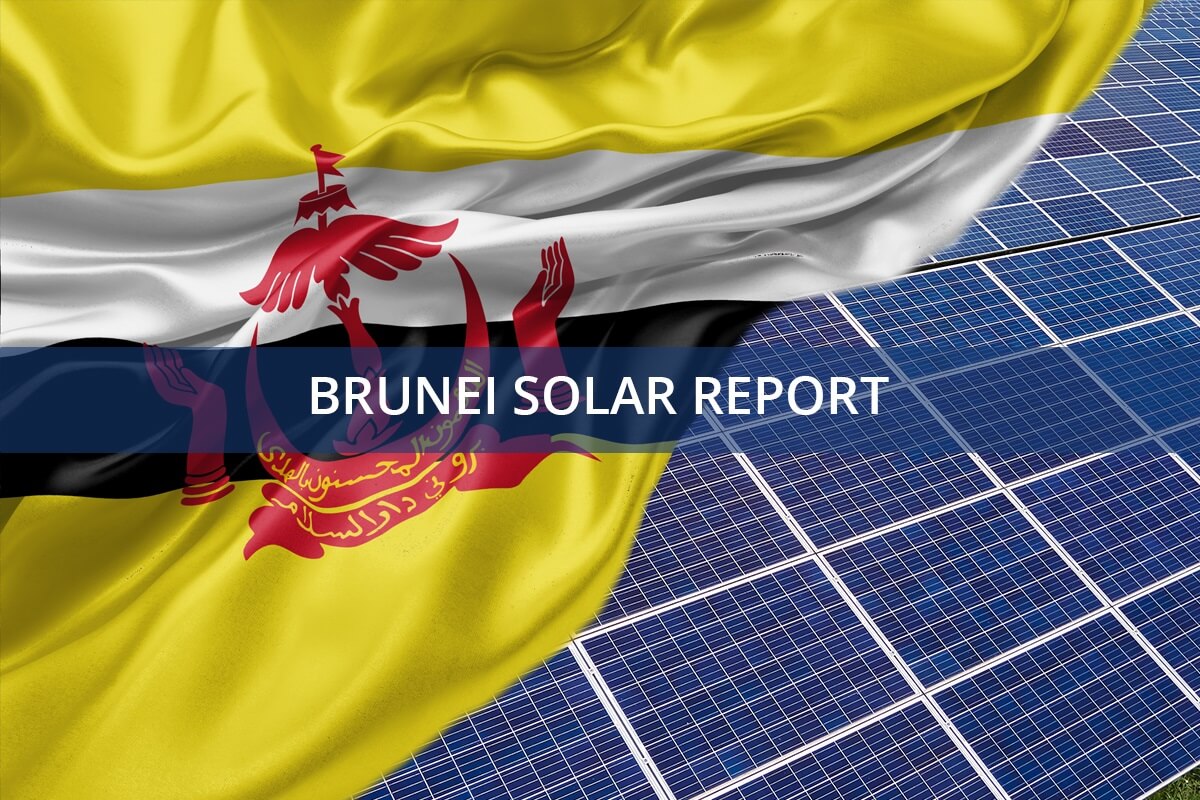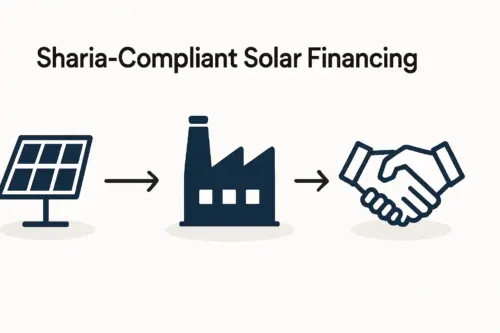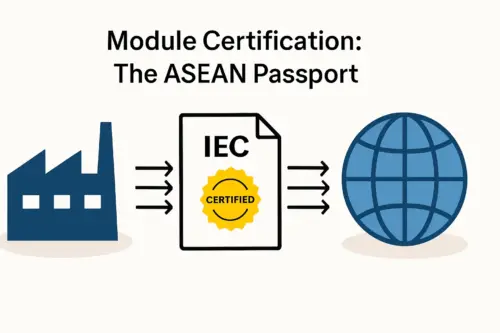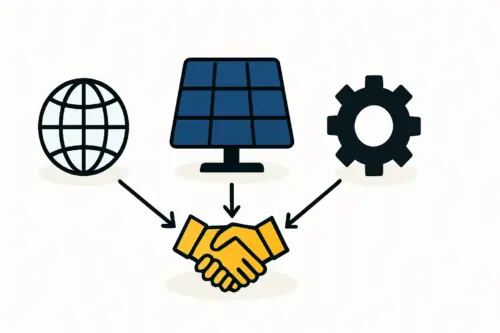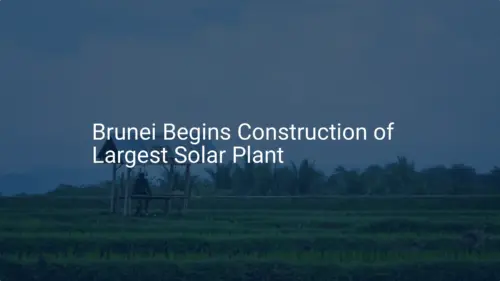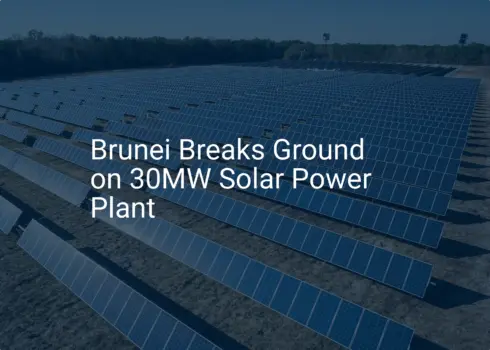For the international entrepreneur exploring Southeast Asia, Brunei Darussalam presents a unique proposition: a politically stable, strategically located nation actively seeking to diversify its economy beyond oil and gas.
For those in the solar manufacturing sector, this national ambition translates into tangible government support. Accessing these benefits, however, requires a clear understanding of the process and expectations of the Brunei Economic Development Board (BEDB).
This guide walks through the application process for BEDB investment incentives, specifically for business professionals planning to establish a solar module production facility. It outlines the types of support available, the eligibility criteria, and the practical steps for preparing a compelling application.
Table of Contents
Understanding Brunei’s Investment Climate for Renewable Energy
As part of its long-term development framework, Wawasan Brunei 2035 (Brunei Vision 2035), the nation is focused on building a dynamic and sustainable economy. A key pillar of this strategy is attracting foreign direct investment into non-oil and gas sectors, with renewable energy manufacturing as a high-priority area.
The Brunei Economic Development Board (BEDB) is the primary government agency responsible for promoting and facilitating these investments. Acting as the frontline contact for foreign investors, it offers a suite of incentives designed to de-risk market entry and encourage the establishment of pioneering industries, such as solar panel production.
Key Investment Incentives for Solar Manufacturers
The BEDB offers two principal incentive schemes for new industrial projects. These are typically mutually exclusive, meaning an applicant is granted one or the other, based on the project’s nature and scale.
Pioneer Status: The Foundation for New Ventures
Pioneer Status is designed for companies introducing a product or activity that has not been previously undertaken in Brunei on a commercial scale. For a solar module manufacturer, this is often the most relevant incentive. Think of it as a government-backed grace period, allowing a new business to establish its operations and achieve profitability with a reduced tax burden.
Key benefits include:
- Corporate Tax Exemption: Complete exemption from corporate income tax for a period of up to five years, which may be extended.
- Duty-Free Imports: Exemption from customs duties on imported capital goods (such as laminators, stringers, and testing equipment) and raw materials (like solar cells, glass, and EVA films) that are not locally available.
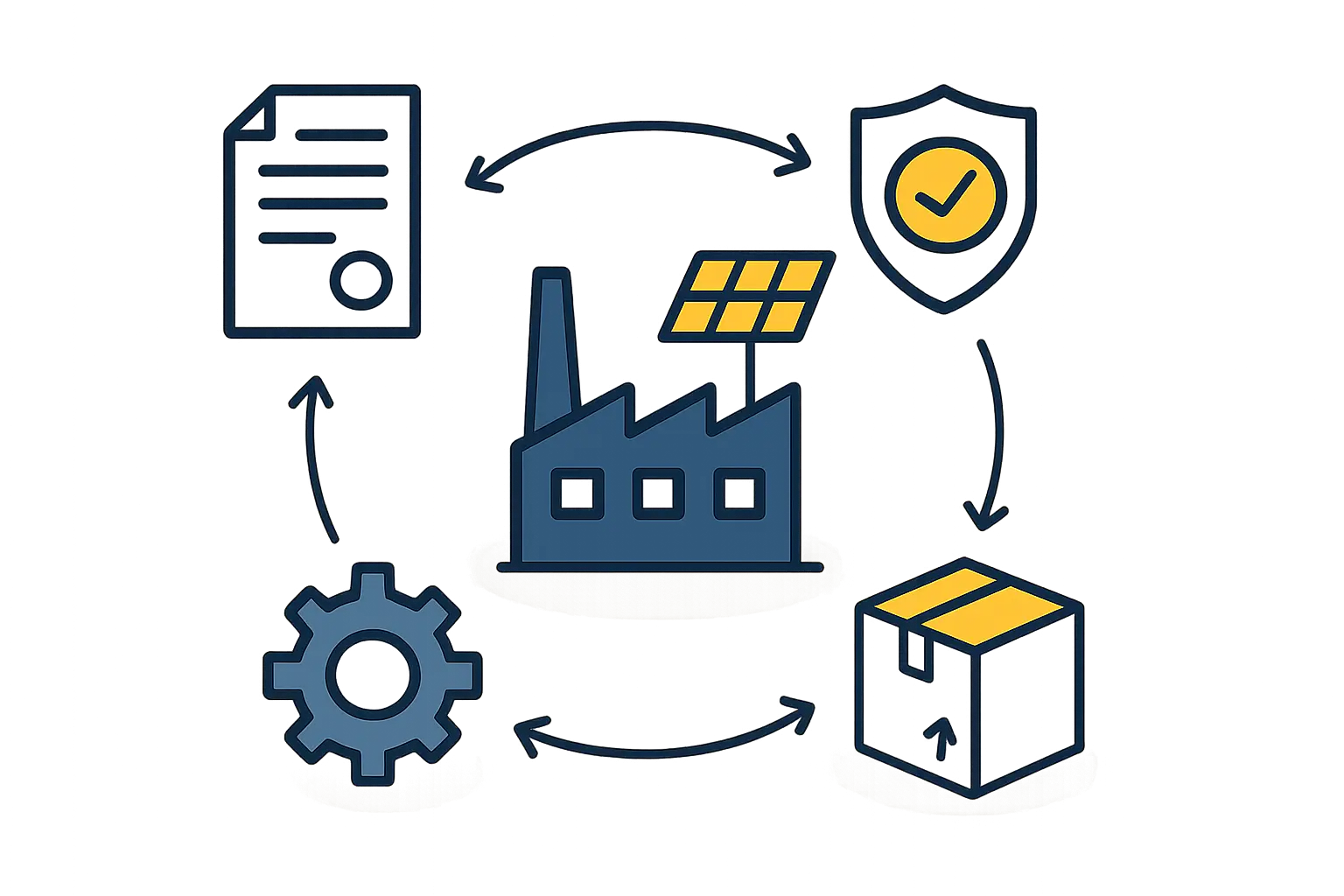
Investment Tax Allowance (ITA): An Alternative Path
As an alternative to Pioneer Status, a company may be granted an Investment Tax Allowance. This incentive allows a company to deduct a percentage (up to 100%) of its capital expenditure from its taxable income.
This allowance must typically be utilized within five years, though an extension to eight years is possible. The ITA is often suitable for projects that involve significant initial capital outlay but are expected to become profitable in a shorter timeframe.
Are You Eligible? Key Criteria for Applicants
A successful application hinges on meeting the BEDB’s core requirements and demonstrating how your project aligns with Brunei’s national development goals. The BEDB places significant emphasis on projects that can demonstrate clear, long-term value to the nation.
Essential Prerequisites:
- The business must be a Limited Company registered under Brunei’s Companies Act.
- The proposed activity—in this case, solar module manufacturing—must be new to Brunei on a commercial scale.
Demonstrable Contributions to Brunei’s Economy:
The BEDB evaluates applications based on a project’s potential to strengthen the local economy. A strong application will clearly articulate its contributions in the following areas:
- Local Employment: A detailed plan for hiring and training Bruneian citizens.
- Export Potential: Projections for exporting finished solar modules to regional or international markets.
- Use of Local Resources: Utilizing local goods and services where feasible.
- Technology Transfer: Introducing new manufacturing technologies and processes to the country.
- Research & Development: Potential for establishing R&D activities within Brunei.
The Application Process: A Practical Walkthrough
Navigating the application process requires meticulous preparation. The BEDB assesses each project on its economic, social, and technical merits, making the quality of your submission paramount.
Step 1: Preparing Your Documentation
Before formal submission, you must compile a comprehensive package of legal and business documents. The core documents include:
- Certificate of Incorporation: Proof of your company’s legal registration in Brunei.
- Memorandum and Articles of Association: The constitutional documents of your company.
- The Business Plan: This is the most critical component. A generic plan is insufficient. A robust application requires a comprehensive business plan that clearly outlines your project’s viability, market strategy, operational plan, and financial forecasts, all tailored to the Bruneian context.
Step 2: Submitting the Application
Once your documentation is prepared, you submit the formal application directly to the Brunei Economic Development Board for review.
Step 3: The Evaluation Phase
During this stage, the BEDB scrutinizes your proposal. Board officials will analyze your business plan, verify your financial models, and assess the project’s alignment with Brunei’s strategic interests. They will look for clear evidence that the project is not only commercially viable but will also deliver on its promised contributions, such as job creation and export revenue.
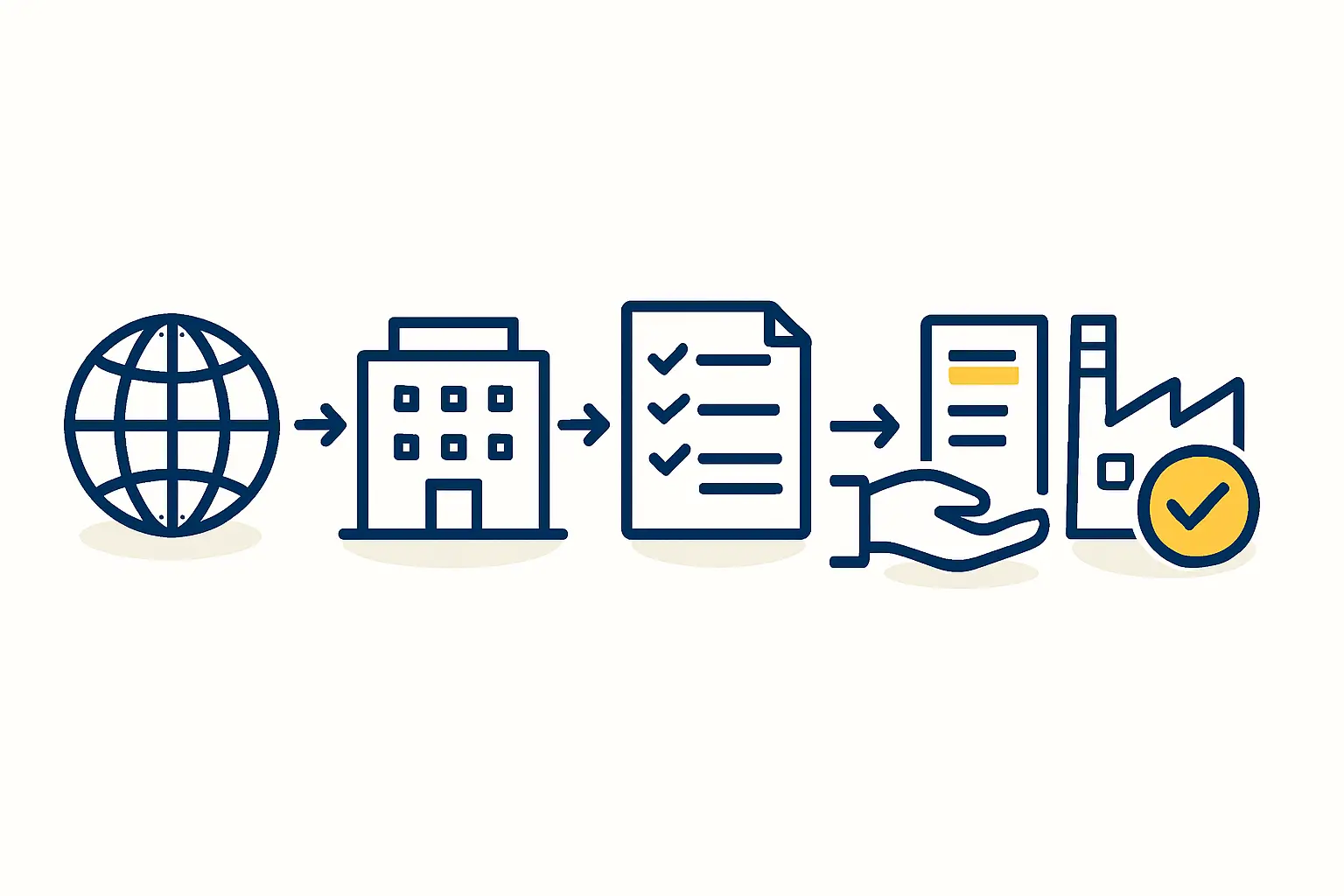
Common Challenges and How to Address Them
Navigating these requirements can be complex for entrepreneurs new to the region. To avoid common pitfalls, focus on the following areas:
- Underestimating the Business Plan’s Importance. Many applications falter due to a business plan that lacks detail or is not customized for Brunei. Your plan must go beyond generic market data and present a clear, evidence-based case for establishing your factory in Brunei specifically.
- Vague Economic Contributions. Simply stating that you will create jobs is not enough. A stronger application quantifies its impact. For example, “We will create 35 skilled positions for local technicians and engineers within the first 24 months of operation” is far more compelling.
- Lack of Clarity on Local Regulations. Failure to understand and comply with Brunei’s Companies Act and other local business laws can delay or derail an application. It is crucial to ensure your corporate structure and proposed operations are fully compliant from day one.
Frequently Asked Questions (FAQ)
Q: What is the typical timeline for an application?
A: Official timelines vary depending on project complexity, but applicants should plan for a multi-month process from submission to final decision. Thorough preparation is the best way to avoid unnecessary delays.
Q: Can an existing company apply for these incentives?
A: The incentives, particularly Pioneer Status, are designed for activities that are new to the country on a commercial scale. An existing company could qualify if it is launching a completely new and qualifying line of business, such as adding a solar module factory to an existing electronics manufacturing operation.
Q: How detailed do the financial projections need to be?
A: Financial projections must be extremely detailed. The BEDB will expect to see a clear path to profitability and a thorough understanding of the project’s capital and operational costs. Your financial projections should include comprehensive forecasts for capital expenditure, operational cash flow, and revenue for at least the first five years.
Q: Is it necessary to have local partners?
A: While not a mandatory requirement, demonstrating strong local engagement is highly advantageous. This could take the form of a joint venture with a Bruneian company, formal partnerships with local suppliers, or a clear and committed plan for hiring and developing local talent at all levels of the organization.

Conclusion and Next Steps
Brunei offers significant and valuable incentives for entrepreneurs looking to establish a solar manufacturing presence in Southeast Asia. A successful application, however, is not a matter of simply filling out forms. It requires a meticulously prepared business case that demonstrates commercial viability and a clear, quantifiable contribution to Brunei’s economic diversification goals.
Understanding the incentive landscape is a critical first step. The next phase involves developing the detailed operational plan and financial model that will form the backbone of your proposal to the BEDB. With the right preparation, your project can be well-positioned to capitalize on the opportunities available in this forward-looking nation.

